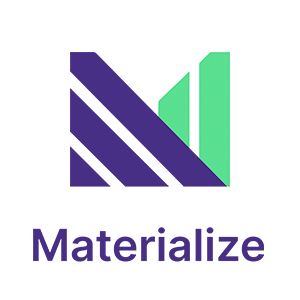
 Data Engineering Podcast
Data Engineering Podcast Addressing The Challenges Of Component Integration In Data Platform Architectures
In this podcast, the host discusses the challenges of integrating components in data platform architectures, including user experience, data sharing and delivery, and shadow IT. They explore event-driven pipelines, access control, data flow ownership, and metadata propagation. The importance of reliable integrations and extensible systems is emphasized, along with tools like Open Lineage and DBT. Python and open metadata platforms are highlighted for simplifying integration and managing permissions and roles across data tools.
29:43
Tobias Macey's Data Platform
- Tobias Macey is building a data platform using a cloud-first data lakehouse architecture.
- He uses DBT, Airbite, Dagster, and Trino with S3 storage.
Custom Platform Complexity
- Building a custom data platform is complex, especially with a small team.
- Managed platforms or vendor solutions are often simpler starting points.
Data Presentation and Misuse
- Consider how presented data might be misused.
- Minimize friction for users to discourage data exfiltration.
Get the Snipd Podcast app to discover more snips from this episode
Get the app 1 chevron_right 2 chevron_right 3 chevron_right 4 chevron_right 5 chevron_right 6 chevron_right 7 chevron_right
Introduction
00:00 • 3min
Challenges of Component Integration in Data Platform Architectures
03:20 • 8min
Challenges of Component Integration and the Role of Memphis Functions
11:48 • 1min
Challenges of Component Integration in Data Platform Architectures
13:17 • 7min
Addressing Challenges of Component Integration in Data Platform Architectures
19:50 • 2min
Challenges of Component Integration and Building a Metadata Platform
22:11 • 3min
Challenges of Component Integration in Data Platform Architectures
24:44 • 5min
Summary
Building a data platform that is enjoyable and accessible for all of its end users is a substantial challenge. One of the core complexities that needs to be addressed is the fractal set of integrations that need to be managed across the individual components. In this episode Tobias Macey shares his thoughts on the challenges that he is facing as he prepares to build the next set of architectural layers for his data platform to enable a larger audience to start accessing the data being managed by his team.
Announcements
- Hello and welcome to the Data Engineering Podcast, the show about modern data management
- Introducing RudderStack Profiles. RudderStack Profiles takes the SaaS guesswork and SQL grunt work out of building complete customer profiles so you can quickly ship actionable, enriched data to every downstream team. You specify the customer traits, then Profiles runs the joins and computations for you to create complete customer profiles. Get all of the details and try the new product today at dataengineeringpodcast.com/rudderstack
- You shouldn't have to throw away the database to build with fast-changing data. You should be able to keep the familiarity of SQL and the proven architecture of cloud warehouses, but swap the decades-old batch computation model for an efficient incremental engine to get complex queries that are always up-to-date. With Materialize, you can! It’s the only true SQL streaming database built from the ground up to meet the needs of modern data products. Whether it’s real-time dashboarding and analytics, personalization and segmentation or automation and alerting, Materialize gives you the ability to work with fresh, correct, and scalable results — all in a familiar SQL interface. Go to dataengineeringpodcast.com/materialize today to get 2 weeks free!
- Developing event-driven pipelines is going to be a lot easier - Meet Functions! Memphis functions enable developers and data engineers to build an organizational toolbox of functions to process, transform, and enrich ingested events “on the fly” in a serverless manner using AWS Lambda syntax, without boilerplate, orchestration, error handling, and infrastructure in almost any language, including Go, Python, JS, .NET, Java, SQL, and more. Go to dataengineeringpodcast.com/memphis today to get started!
- Data lakes are notoriously complex. For data engineers who battle to build and scale high quality data workflows on the data lake, Starburst powers petabyte-scale SQL analytics fast, at a fraction of the cost of traditional methods, so that you can meet all your data needs ranging from AI to data applications to complete analytics. Trusted by teams of all sizes, including Comcast and Doordash, Starburst is a data lake analytics platform that delivers the adaptability and flexibility a lakehouse ecosystem promises. And Starburst does all of this on an open architecture with first-class support for Apache Iceberg, Delta Lake and Hudi, so you always maintain ownership of your data. Want to see Starburst in action? Go to dataengineeringpodcast.com/starburst and get $500 in credits to try Starburst Galaxy today, the easiest and fastest way to get started using Trino.
- Your host is Tobias Macey and today I'll be sharing an update on my own journey of building a data platform, with a particular focus on the challenges of tool integration and maintaining a single source of truth
Interview
- Introduction
- How did you get involved in the area of data management?
- data sharing
- weight of history
- existing integrations with dbt
- switching cost for e.g. SQLMesh
- de facto standard of Airflow
- Single source of truth
- permissions management across application layers
- Database engine
- Storage layer in a lakehouse
- Presentation/access layer (BI)
- Data flows
- dbt -> table level lineage
- orchestration engine -> pipeline flows
- task based vs. asset based
- Metadata platform as the logical place for horizontal view
Contact Info
Parting Question
- From your perspective, what is the biggest gap in the tooling or technology for data management today?
Closing Announcements
- Thank you for listening! Don't forget to check out our other shows. Podcast.__init__ covers the Python language, its community, and the innovative ways it is being used. The Machine Learning Podcast helps you go from idea to production with machine learning.
- Visit the site to subscribe to the show, sign up for the mailing list, and read the show notes.
- If you've learned something or tried out a project from the show then tell us about it! Email hosts@dataengineeringpodcast.com) with your story.
- To help other people find the show please leave a review on Apple Podcasts and tell your friends and co-workers
Links
- Monologue Episode On Data Platform Design
- Monologue Episode On Leaky Abstractions
- Airbyte
- Trino
- Dagster
- dbt
- Snowflake
- BigQuery
- OpenMetadata
- OpenLineage
- Data Platform Shadow IT Episode
- Preset
- LightDash
- SQLMesh
- Airflow
- Spark
- Flink
- Tabular
- Iceberg
- Open Policy Agent
The intro and outro music is from The Hug by The Freak Fandango Orchestra / CC BY-SA
Sponsored By:
- Memphis:  Developing event-driven pipelines is going to be a lot easier - Meet Functions! Memphis functions enable developers and data engineers to build an organizational toolbox of functions to process, transform, and enrich ingested events “on the fly” in a serverless manner using AWS Lambda syntax, without boilerplate, orchestration, error handling, and infrastructure in almost any language, including Go, Python, JS, .NET, Java, SQL, and more. Go to [dataengineeringpodcast.com/memphis](https://www.dataengineeringpodcast.com/memphis) today to get started!
- Rudderstack:  Introducing RudderStack Profiles. RudderStack Profiles takes the SaaS guesswork and SQL grunt work out of building complete customer profiles so you can quickly ship actionable, enriched data to every downstream team. You specify the customer traits, then Profiles runs the joins and computations for you to create complete customer profiles. Get all of the details and try the new product today at [dataengineeringpodcast.com/rudderstack](https://www.dataengineeringpodcast.com/rudderstack)
- Starburst:  This episode is brought to you by Starburst - a data lake analytics platform for data engineers who are battling to build and scale high quality data pipelines on the data lake. Powered by Trino, Starburst runs petabyte-scale SQL analytics fast at a fraction of the cost of traditional methods, helping you meet all your data needs ranging from AI/ML workloads to data applications to complete analytics. Trusted by the teams at Comcast and Doordash, Starburst delivers the adaptability and flexibility a lakehouse ecosystem promises, while providing a single point of access for your data and all your data governance allowing you to discover, transform, govern, and secure all in one place. Starburst does all of this on an open architecture with first-class support for Apache Iceberg, Delta Lake and Hudi, so you always maintain ownership of your data. Want to see Starburst in action? Try Starburst Galaxy today, the easiest and fastest way to get started using Trino, and get $500 of credits free. [dataengineeringpodcast.com/starburst](https://www.dataengineeringpodcast.com/starburst)
- Materialize:  You shouldn't have to throw away the database to build with fast-changing data. Keep the familiar SQL, keep the proven architecture of cloud warehouses, but swap the decades-old batch computation model for an efficient incremental engine to get complex queries that are always up-to-date. That is Materialize, the only true SQL streaming database built from the ground up to meet the needs of modern data products: Fresh, Correct, Scalable — all in a familiar SQL UI. Built on Timely Dataflow and Differential Dataflow, open source frameworks created by cofounder Frank McSherry at Microsoft Research, Materialize is trusted by data and engineering teams at Ramp, Pluralsight, Onward and more to build real-time data products without the cost, complexity, and development time of stream processing. Go to [materialize.com](https://materialize.com/register/?utm_source=depodcast&utm_medium=paid&utm_campaign=early-access) today and get 2 weeks free!
